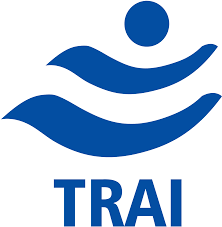TRAI Tightens Rules on Spam Calls, Boosts Consumer Protection Under TCCCPR
The TCCCPR-2018 regulations, introduced by TRAI in July 2018, form the legal and regulatory framework for controlling telecom-based spam and marketing abuse.

- Country:
- India
In an assertive move to tackle the growing menace of spam messages and unsolicited calls, the Telecom Regulatory Authority of India (TRAI) has introduced key amendments to the Telecommunications Commercial Communications Consumers Preference Regulations, 2018 (TCCCPR-2018). These revised guidelines are aimed at improving consumer protection, streamlining complaint redressal, and imposing stricter penalties on violators.
The updates, announced by Dr. Pemmasani Chandra Sekhar, Minister of State for Communications and Rural Development, in a written reply to the Rajya Sabha, are part of the government's ongoing efforts to curb Unsolicited Commercial Communications (UCC)—more commonly known as spam calls and messages.
What is TCCCPR-2018?
The TCCCPR-2018 regulations, introduced by TRAI in July 2018, form the legal and regulatory framework for controlling telecom-based spam and marketing abuse. The framework mandates telecom access service providers to ensure that their networks are not misused for unregulated commercial messaging and calls.
The regulation empowers consumers to control the kind of commercial communication they receive, penalizes rogue telemarketers, and compels service providers to maintain checks and balances in the telecom ecosystem.
Key Consumer Protections Under TCCCPR-2018
-
Registration of Preferences: Consumers can choose to block all commercial communication or selectively allow categories they are interested in, such as banking alerts, health services, or promotional offers. This can be done via:
-
Mobile App
-
SMS to short code 1909
-
Calling the toll-free number 1909
-
-
Complaint Mechanism: Consumers can report spam or UCC from both registered and unregistered telemarketers using the same platforms. TRAI has ensured that complaint procedures are simple and accessible to all telecom users.
-
Penalties and Enforcement:
-
Blacklisting of repeat offenders and rogue telemarketers
-
Action against Unregistered Telemarketers (UTMs), which includes:
-
Official warnings
-
Usage restrictions
-
Disconnection of telecom services after repeated violations
-
-
Financial Disincentives (FDs) on service providers who fail to curb UCC through negligence or inaction
-
Recent Amendments Effective from 12 February 2025
In response to evolving spam tactics and persistent complaints, TRAI amended the TCCCPR-2018 with several critical changes that strengthen enforcement and improve consumer convenience:
-
Extended Complaint Window: Consumers now have up to 7 days to report unwanted communication, up from the earlier 3-day window. This gives users more time to report spam, especially in cases where they’re unable to respond immediately.
-
Faster Action on Complaints: The time limit for access providers to act against UCC originating from unregistered senders has been reduced from 30 days to just 5 days, ensuring faster resolution and minimizing repeated abuse.
-
Tougher Criteria for Enforcement: TRAI has revised the threshold for action against UCC violators, making enforcement more stringent and ensuring that perpetrators do not escape accountability due to technicalities or procedural delays.
Mandate for Consumer Awareness
A crucial element of TCCCPR-2018 is the requirement that access service providers actively engage in consumer education and awareness campaigns. These efforts are meant to ensure that users understand:
-
How to register or change their communication preferences
-
How to provide or revoke consent for specific services
-
How to lodge complaints or report spam effectively
-
The legal consequences of participating in or enabling spam, including disconnection of telecom services
TRAI encourages service providers to publicize these procedures across digital platforms, customer service touchpoints, and outreach programs, especially targeting vulnerable groups like senior citizens and rural users.
National Impact and Way Forward
India continues to battle rampant commercial messaging abuse, with UCC being one of the top complaints received by telecom service providers and regulators. These updated rules come at a time when phishing, fraudulent calls, fake investment schemes, and digital harassment via spam channels are rising.
The TCCCPR framework, bolstered by these amendments, will provide greater control to consumers, impose swift and stricter penalties on offenders, and create a more responsible ecosystem among telecom providers. It also aligns with global best practices on data privacy and digital consumer protection.
The government has reiterated its commitment to upholding digital trust and user dignity in the rapidly expanding telecom sector, calling upon all stakeholders—including telecom operators, businesses, marketers, and consumers—to play their part in curbing the misuse of communication technologies.










